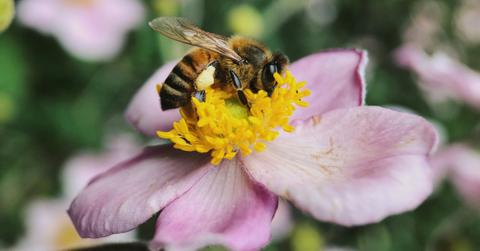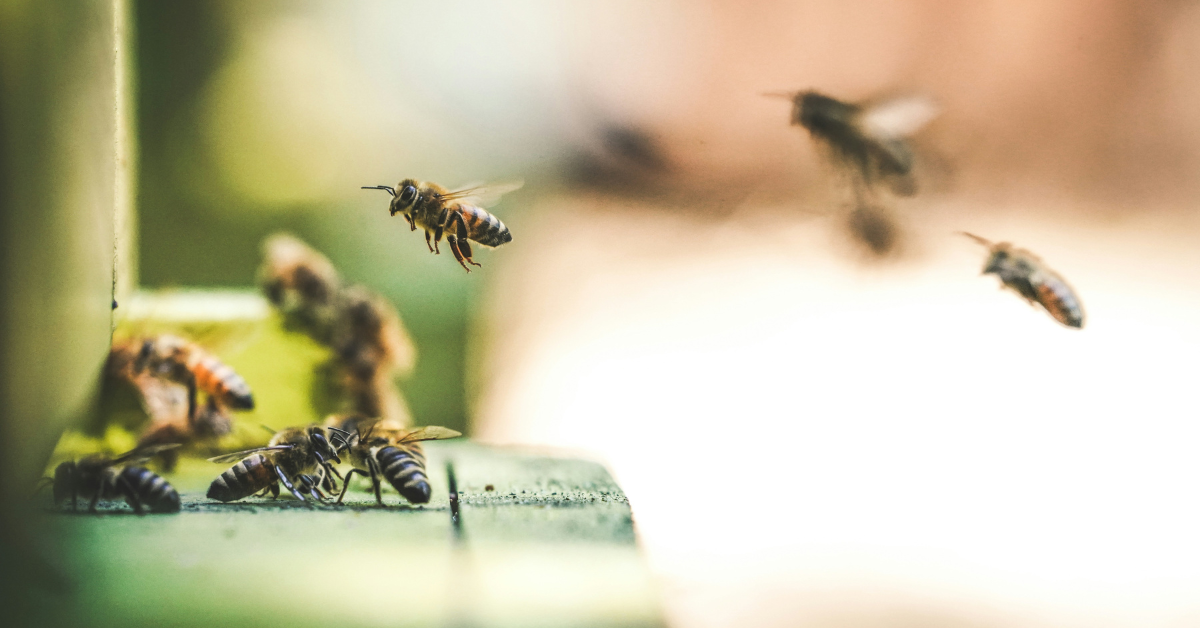This Odd Quirk Keeps Bees From Flying at Night
Get the buzz on whether or not bees can still soar without the help of the sun.
Published Sept. 23 2024, 11:54 a.m. ET

Those who suffer from melissophobia (aka a fear of bees) may be curious whether a viral video that's been circulating since March 2022 is legit.
In the brief clip, a researcher performs an experiment to try and see if bees will continue buzzing around their enclosure after the lights go out, the results of which left many wondering whether bees can fly at night.
It would see that the answer to the question really varies depending on where you live, and what kind of bees call your neighborhood home.

Can bees flight in the dark of night?
Unlike humans, USA Today explains that the eyes of a bee are made up of thousands of different lenses. These lenses aren't as complex as the eyes of mammals, and instead of giving them the ability to clearly see the world around them, their eyes only let in enough light to allow the busy pollinators to detect movement.
This unique ocular layout has made it so that both bumble bees and honeybees are actually completely blind without the bright light of the sun.
But, that doesn't mean that those with apiphobia (another word for the fear of bees) can breathe a bit easier when spending time in the great outdoors after dark: some bees can still get around once the sun goes down.
USA Today notes that bees who are crepuscular — or those who can get by on just a bit of light — can travel freely during those brief periods of faint light that occur during sunup and sundown, allowing them to beat the heat during summer while collecting their pollen.
The School of Bees website explains that there are up to seven different families of bees that fit this description, and they include species like the Caupolicana ocellata and Martinapis luteicornis, both of which are native to North America.
Then there are some species that get by with a little help from the moon, like nocturnal bees. The website says that the Indian Carpenter Bee and the sweat bee both fall into this category.
A viral video started the conversation, after it appeared to show that bees were unable to fly at night.
Hamish Symington's video originally kicked off the question about the nocturnal flight abilities of bees, when the postgraduate student shared the clip along with some thoughts in a since deleted tweet. Fortunately, the video found second life on TikTok, where plenty of people were able to watch the dramatic way the bees went from buzzing around inside the bright enclosure to plummeting to the ground, quite literally at the flip of a switch to darkness.
USA Today notes that Symington was also stunned by the dramatic change in flight behavior.
"I'm surprised it's an on/off choice for them — no graceful trying to glide to land or anything like that, they literally just stop flying and plummet," the original tweet read. "Surely that's more dangerous than keeping flying?"
While bumble bees and honeybees may have a strict curfew when it comes to flying at night, they aren't completely without the ability to get around after lights out, since they are still able to crawl without the help of the sun.
That may be good news for bees, but probably not music to the ears of anyone hoping to avoid the pollinators completely after dark.